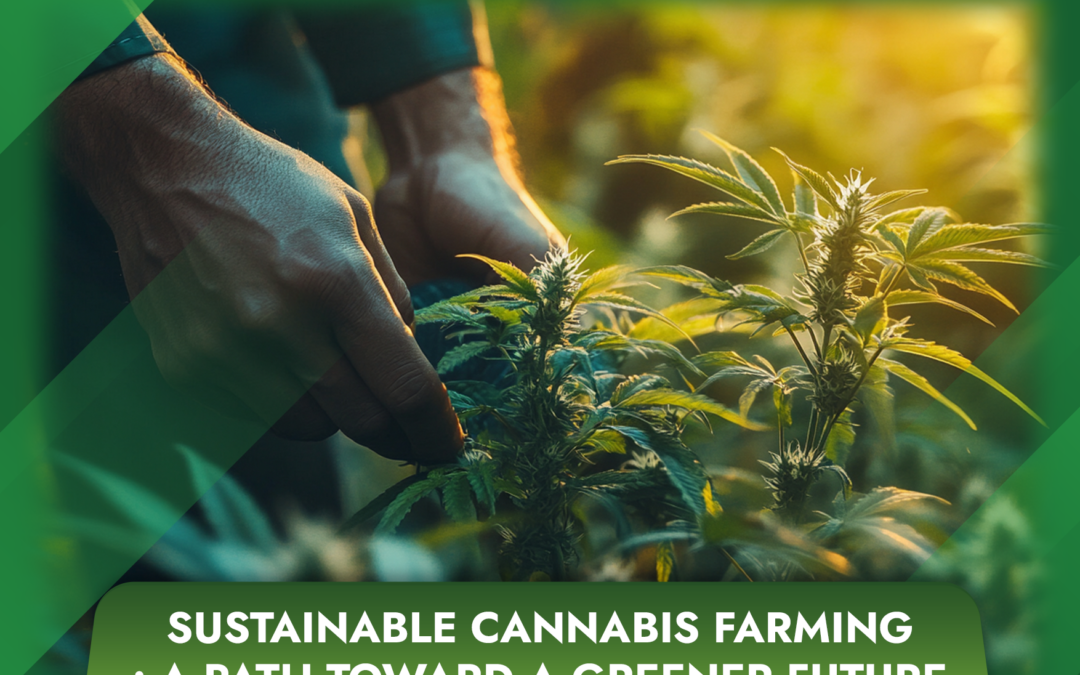Cannabis farming is growing rapidly worldwide, driven by the increasing legalization of medical and recreational cannabis. While this industry offers significant economic opportunities, it also presents environmental challenges, including energy use, water consumption, and waste production. Sustainable cannabis farming offers a solution, blending innovation with eco-friendly practices to reduce the environmental impact and create a greener future.
Why Sustainability Matters in Cannabis Farming
Cannabis farming can be resource-intensive, especially in large-scale operations. Traditional indoor cultivation relies heavily on artificial lighting, climate control systems, and water, leading to high energy consumption and environmental strain. By adopting sustainable methods, farmers can:
- Lower their carbon footprint: Use renewable energy sources and energy-efficient practices to reduce emissions.
- Preserve water resources: Implement systems to recycle and conserve water.
- Promote soil health: Avoid harmful chemicals and adopt organic farming methods to improve soil quality.
- Support biodiversity: Encourage natural ecosystems that benefit the farm and surrounding areas.
Key Practices in Sustainable Cannabis Farming
1. Energy Efficiency and Renewable Energy
Indoor cannabis farms often consume significant electricity for lighting and climate control. Switching to energy-efficient LED lights and solar or wind power reduces costs and environmental impact. Outdoor or greenhouse cultivation, which relies on natural sunlight, is another sustainable alternative.
2. Water Conservation
Cannabis plants need much water, but sustainable farming techniques can reduce waste.
- Drip irrigation: Delivers water directly to plant roots, minimizing runoff and evaporation.
- Rainwater harvesting: Collects and stores rainwater for use in irrigation.
- Recycling systems: Treat and reuse wastewater to conserve resources.
3. Organic Farming Practices
Avoiding synthetic pesticides and fertilizers benefits the environment and produces cleaner, healthier cannabis. Organic compost, natural pest control methods, and crop rotation improve soil health and reduce chemical dependency.
4. Waste Management
Cannabis farming generates plant waste, including stems and leaves. Sustainable farms turn this waste into compost or bioenergy instead of sending it to landfills.
5. Biodiversity and Regenerative Farming
Integrating companion planting and natural ecosystems into cannabis farms promotes biodiversity. Regenerative farming practices, such as cover cropping and no-till farming, restore soil fertility and sequester carbon from the atmosphere.
The Role of Technology in Sustainable Cannabis Farming
Technology plays a crucial role in helping cannabis farms become more sustainable:
- Smart sensors and IoT devices: Monitor soil moisture, temperature, and humidity, allowing precise adjustments to conserve resources.
- Vertical farming systems: Maximize space and efficiency while minimizing land use.
- Blockchain technology: Ensures traceability and transparency, letting consumers choose sustainably grown cannabis products.
Challenges in Adopting Sustainable Practices
Transitioning to sustainable farming comes with challenges, including:
- High initial costs: Installing renewable energy systems or advanced water management tools requires upfront investment.
- Education and training: Farmers need knowledge and skills to implement sustainable techniques effectively.
- Regulatory barriers: Navigating complex regulations can make adopting new practices more difficult.
Despite these challenges, the long-term benefits—both environmental and economic—make sustainability a worthwhile investment.
Consumer Demand for Sustainable Cannabis
Today’s consumers are more environmentally conscious than ever. They’re looking for products that align with their values, including sustainably farmed cannabis. Farms that adopt green practices often gain a competitive edge in the market, attracting eco-conscious customers and building trust through transparency.
A Greener Future for Cannabis Farming
Sustainable cannabis farming is more than a trend; it’s a necessity for the industry’s future. By adopting energy-efficient, water-conserving, and organic methods, cannabis farms can reduce their environmental impact while delivering high-quality products. These efforts contribute to a healthier planet and a thriving, responsible industry.
As cannabis continues to gain acceptance worldwide, the shift toward sustainable farming practices will ensure that its growth benefits both people and the planet. A greener future for cannabis farming isn’t just possible—it’s essential.

